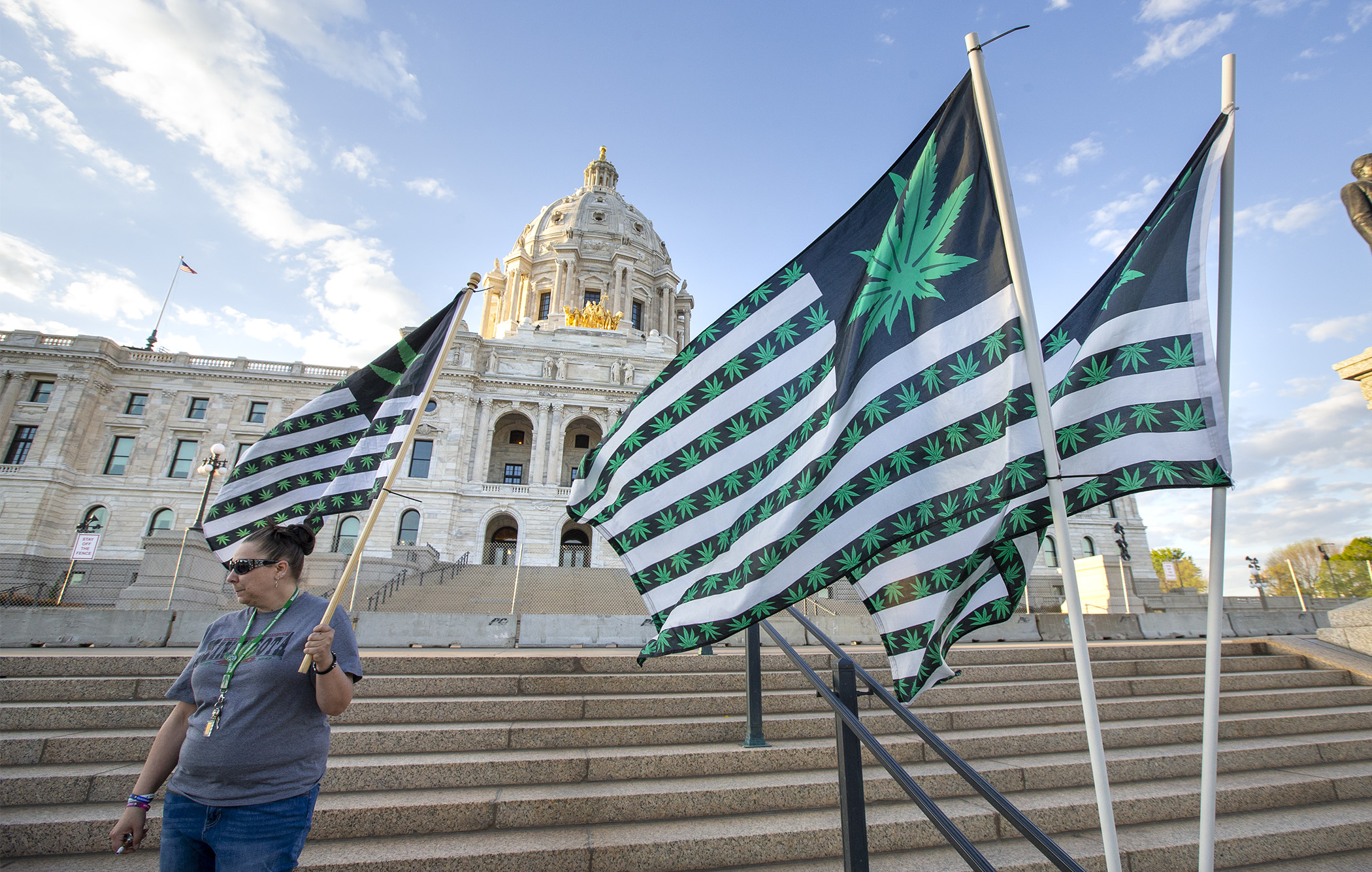Cannabis legalization conferees agree to 10% sales tax; House Floor next stop as supporters seek green votes

Don’t light up a spliff just yet, but odds you could enjoy a legal joint by this summer got higher Tuesday.
All you need now are two affirmative votes and a pen stroke.
Rep. Zack Stephenson (DFL-Coon Rapids), who sponsors HF100 with Sen. Lindsey Port (DFL-Burnsville), said both he and Port are optimistic the recreational cannabis bill will be repassed by both chambers before the session ends.
“I think we’re both feeling really confident that we have the votes we need to pass the bill,” Stephenson said as the conference committee finalized its report and wrapped up its work.
One of the last missing pieces was revealed Tuesday when conferees approved the taxation article incorporating the Senate position setting a 10% retail tax on cannabis and not the 8% in the House bill. The tax would be in addition to the state’s 6.875% sales tax and any other locally imposed sales taxes.
[MORE: View summary of agreement]
For those of you keeping score, finalizing the conference committee report puts the legalization of adult recreational use of cannabis three steps away from becoming law.
If the agreement is passed by the House and Senate and signed by Gov. Tim Walz, recreational marijuana usage would become legal Aug. 1. The governor has previously expressed support.
Funding
The agreement would appropriate $79.9 million in the 2024-25 biennium to establish statewide and local structures to regulate and manage cannabis sales, fund prevention and addiction recovery programs, and provide grants to law enforcement and courts.
Stephenson said tax revenue and revenue from licensing fees would start flowing into state coffers in about 12 to 18 months, so the bill would not appropriate any money beginning in fiscal year 2026. The state expects $24.4 million to be generated from taxation and license fees in the 2026-27 biennium.
Over the long run, the bill is more than self-supporting, he said.
[MORE: View the final agreement spreadsheet]
Conferees agreed to send 20% of retail taxes collected to a local government cannabis aid special revenue account. Funds would be distributed each year to cities and counties; a portion distributed in equal amounts to all 87 counties and most of the rest distributed based on the number of cannabis retailers in a county.
Stephenson said protections for existing medical cannabis suppliers are included, to help them stay in business if recreational cannabis significantly shrinks their prescription market.
“Every state that has legalized adult-use cannabis that had a medical program, the medical programs shrank significantly, a 40% plus loss of patients,” he said.
Licensed medical suppliers would be permitted to produce and sell recreational cannabis, with the exact amount allowed based on the percentage of their business lost to newly licensed recreational cannabis retailers.
Monday action
Conferees announced several decisions Monday that set the stage for adoption of the final report.
A person would be allowed to possess 2 pounds of cannabis for personal consumption. Someone possessing more than that would be guilty of first-degree possession and may be sentenced to up to five years in prison and a $10,000 fine.
If a business entity applies for cannabis retail licensure, background checks would be required for “every cooperative member or director, manager, and general partner of the business entity.”
Cities could not ban cannabis stores altogether, rather they could impose a limit of one retail license for every 12,500 residents.
Many changes to state statutes, agencies
The bill would make significant changes in many parts of Minnesota law by:
- creating more than a dozen types of licenses for growing, selling, transporting and testing cannabis;
- creating an Office of Cannabis Management to regulate cannabis and take enforcement actions;
- creating and funding programs to combat cannabis abuse;
- creating grants to assist individuals entering the legal cannabis market;
- eliminating criminal penalties for permitted amounts of cannabis possession; and
- expunging criminal records of people previously convicted of low-level cannabis offenses.
There would be several legal limits on marijuana use, and civil penalties for violating those limits.
Adults could not use cannabis in state correctional facilities, operate a motor vehicle while under the influence of cannabis, give cannabis to a person under age 21, or give cannabis as a promotional gift.
Related Articles
Search Session Daily
Advanced Search OptionsPriority Dailies
Speaker Emerita Melissa Hortman, husband killed in attack
By HPIS Staff House Speaker Emerita Melissa Hortman (DFL-Brooklyn Park) and her husband, Mark, were fatally shot in their home early Saturday morning.
Gov. Tim Walz announced the news dur...
House Speaker Emerita Melissa Hortman (DFL-Brooklyn Park) and her husband, Mark, were fatally shot in their home early Saturday morning.
Gov. Tim Walz announced the news dur...
Lawmakers deliver budget bills to governor's desk in one-day special session
By Mike Cook About that talk of needing all 21 hours left in a legislative day to complete a special session?
House members were more than up to the challenge Monday. Beginning at 10 a.m...
About that talk of needing all 21 hours left in a legislative day to complete a special session?
House members were more than up to the challenge Monday. Beginning at 10 a.m...